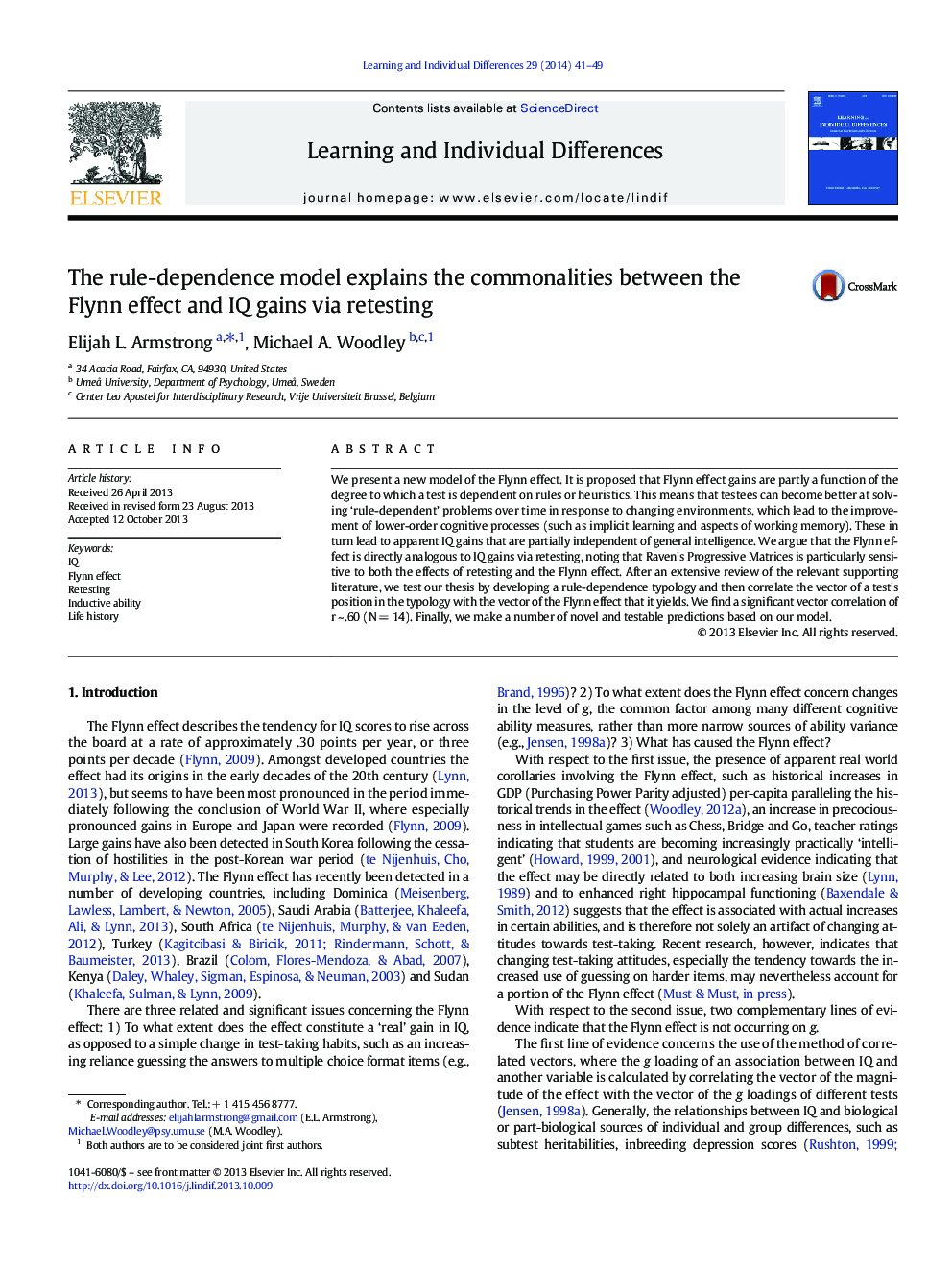| Article ID | Journal | Published Year | Pages | File Type |
|---|---|---|---|---|
| 364985 | Learning and Individual Differences | 2014 | 9 Pages |
•A new integrated model of the Flynn effect is proposed.•Flynn effects result from the increasing use of non-g sources of performance.•Rules in tests guide the use of these non-g abilities and information.•Degree of rule dependence and actual Flynn effects are positively correlated.
We present a new model of the Flynn effect. It is proposed that Flynn effect gains are partly a function of the degree to which a test is dependent on rules or heuristics. This means that testees can become better at solving ‘rule-dependent’ problems over time in response to changing environments, which lead to the improvement of lower-order cognitive processes (such as implicit learning and aspects of working memory). These in turn lead to apparent IQ gains that are partially independent of general intelligence. We argue that the Flynn effect is directly analogous to IQ gains via retesting, noting that Raven's Progressive Matrices is particularly sensitive to both the effects of retesting and the Flynn effect. After an extensive review of the relevant supporting literature, we test our thesis by developing a rule-dependence typology and then correlate the vector of a test's position in the typology with the vector of the Flynn effect that it yields. We find a significant vector correlation of r ~ .60 (N = 14). Finally, we make a number of novel and testable predictions based on our model.
